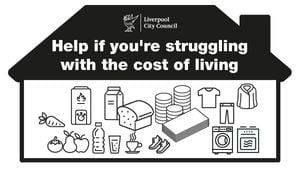Amsterdam, the vibrant capital of the Netherlands, is currently grappling with social unrest following violent incidents tied to tensions surrounding soccer matches and their underlying political ramifications. The situation has been escalated by recent events where pro-Palestinian sentiments clashed with fervent support for Israeli teams, leading to disturbing scenes of violence and vandalism.
On November 11, 2024, police reported a group of rioters armed with sticks and firecrackers set fire to a tram during their protests, which have raised severe concerns about public safety and social cohesion. The tram fire occurred outside the city’s main square and was put out swiftly; nevertheless, it sparked fears of more unrest. Olivier Dutilh, the head of Amsterdam’s police force, disclosed at a court hearing, “We have signals indicating there are calls for similar actions”—a stark warning to the community and authorities alike.
The unrest was not random; it followed violent clashes involving fans of Ajax, Maccabi Tel Aviv, and Turkish club Fenerbahce, who had played against AZ Alkmaar. These events, which began during the match day and spilled onto the streets, created conditions ripe for riots. Authorities noted the fierce atmosphere from previous confrontations, where fans were reportedly hunted down, beaten, and verbally abused.
Just days before this incident, Amsterdam witnessed substantial tensions as five individuals were hospitalized due to injuries sustained from beatings. Protesters, young men on scooters and foot, initiated the attacks by seeking out Israeli fans, highlighting not only the volatility of the situation but the deep ethnic divides exacerbated by the recent Israel-Palestine conflict.
Adding to the complexity, local authorities had implemented bans on public demonstrations around the stadium prior to the match due to fears of violent outbreaks. Though aimed at preventing conflicts, these restrictions seemed to fuel anger within various factions of the community. Disturbingly, Maccabi fans were also reported to have torn down Palestinian flags from buildings, thereby intensifying local grievances.
The growing violence has inevitably drawn the attention of law enforcement, with Dutch police announcing multiple arrests. Following their investigations, police arrested five men aged 18 to 37, linked to the previous outbursts of violence. Two minors were also taken under custody during these operations, as police collected forensic evidence from various affected scenes.
Prime Minister Dick Schoof emphasized the need to address rising antisemitism and violence related to the recent Middle East tensions. He convened meetings with community leaders to discuss these issues, seeking to find pathways to de-escalate such distressing scenarios. "We need to confront the antisemitic sentiments prevalent after recent events; it’s imperative for the unity of our society," he stated.
Compounding factors include weekend protests classified as illegal by the local government but nonetheless dwelled upon by disgruntled citizens leading to sporadic confrontations. On Sunday, several individuals were detained for participating in unauthorized pro-Palestinian gatherings, indicative of the broader social discord.
This trend isn’t isolated. Reports indicate heightened antisemitism and violence across Europe since the escalation of the war in Gaza. Incidents of verbal abuse, physical confrontations, and vandalism against Jewish individuals have surged, raising alarms among community stakeholders and law enforcement.
While authorities work diligently to restore peace, the social fabric of Amsterdam reflects broader geopolitical tensions—reminding citizens and officials alike of the varied impacts of global events on local communities. The path toward fostering dialogue and healing divisions remains fraught with challenges as long as inflammatory acts continue to erupt from clusters of anger how they respond to the political climate.



